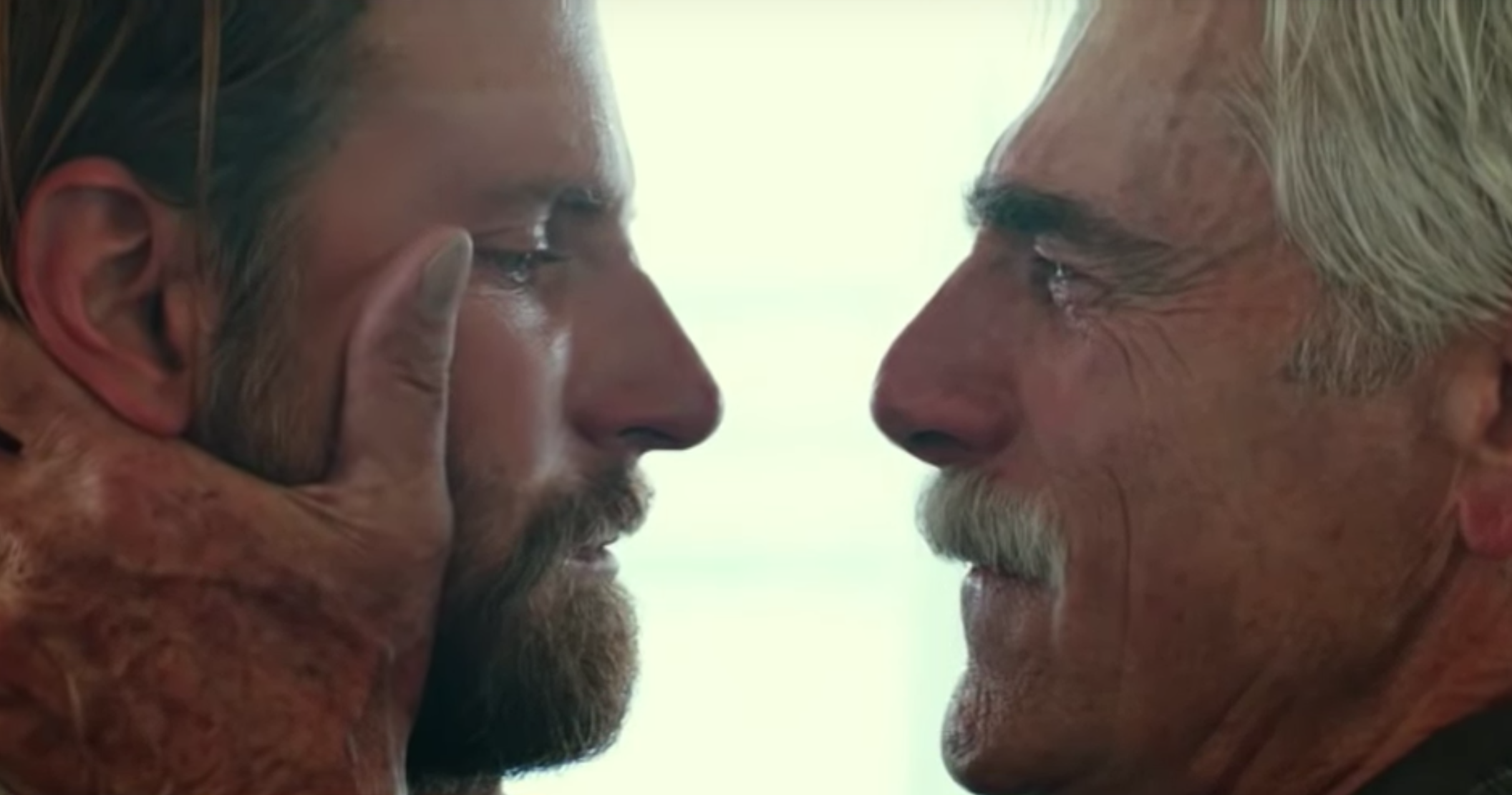For the audience member who enjoyed A Star is Born—or one who felt themselves repressing sobs against their better judgment—there is a question that lingers after seeing it. How did a movie that tells such a familiar story, that hits so many well-worn bullet points, manage to be so viscerally effective? Why is this movie triggering a commercial groundswell? It can’t reasonably just be the fault of the pre-release memes and chart-ready soundtrack. The attention to detail in the Bradley Cooper-directed mini-epic helps draw skeptical viewers into its emotional universe, with tasteful gestures and an unremitting intensity that ties Star to an older-feeling, more artful Hollywood tradition. But the primary source of the film’s power may be the commitment of its cast members, each of whom finds unexpected nooks and crannies in the script to inhabit or revise in the moment.
This is not only true for the film’s leads: Cooper as troubled country-rocker Jackson Maine and Lady Gaga as aspiring singer-songwriter Ally. Sam Elliott’s performance as Bobby, Jackson’s much older brother, manager, and surrogate father figure, exemplifies Star’s ethos: that hard-to-pin-down quality that makes it affecting beyond the average modern blockbuster drama. Serving largely as a reminder of Jackson’s past hopes and dreams and his country credentials, Elliott’s character might not seem very important on paper. Elliott, a recognizable tough-guy totem in Hollywood since the ’80s, is often cast as a sort of archetype: the wry, stoic Marlboro Man. He could have been carroted into the script as an afterthought, an excuse for him to simply act like Sam Elliott every so often at the edges of the action. In fact, were it not for one crucial scene between Bobby and Ally—one of Bobby’s few direct interactions with anyone except his brother––Elliott’s character could nearly be theorized as a hallucination of Jackson’s: a mystical presence in the vein of his acid-cowboy role in The Big Lebowski.
But the outsized tragic gusto Elliott brings to the role makes him essential to A Star Is Born’s emotional charge. A fistfight between Jackson and Bobby relatively early in the film seems to arise from nowhere, throwing the viewer into the middle of an unexpectedly complex relationship. Elliott is fiery and a little terrifying, as if he’s prepared for the scene by chugging several Red Bulls and thinking about a dead family member for a while. He uses muscles in his face I’ve never seen him isolate before. He also just looks amazing spitting out blood. If any visage is a naturally fascinating object for the camera, it’s Sam Elliott’s.

Also Read
The ‘Maestro’ Takes a Bow
Elliott could have given a lot less to this movie and still been an asset. Instead, he insinuated himself into its foreground. He and Cooper have an alchemical understanding of one another in their scenes. Both seem to grasp that the success of the project depends on their ability to wrench verisimilitude and heft from small, standalone moments—nevermind the inherent cliche of the larger enterprise. In a recent interview, Elliott revealed that in one such scene, a particularly striking acting choice from Cooper—a stammering revelation delivered to Bobby after getting out of his pickup truck—was improvised. The subsequent shot, of a teary-eyed Bobby backing out of the driveway, was an accident. But it revealed Elliott’s level of absorption in his performance. “The only reason I turned around was to back out of the shot,” he said. “It wasn’t to [show my face]. That’s where I was at the moment.”
A Star is Born’s rise-and-fall narrative is one we’ve encountered countless times before, even outside of the other three films of the same name. Telling this sort of story again is like restaging Shakespeare. But it is an inspired restaging, thanks in part to the unusual pacing of the action, and the expertly controlled focus of Cooper’s direction, which meticulously captures the subtle spontaneity and curious tics of his actors’ performances. The film’s landmarks are the scenes that breathe the most, even if they don’t represent the major events of the plot. (Seemingly pivotal passages, like the particulars of Ally’s pop stardom itself, get comparatively marginal screen time.)
For Cooper’s approach to epic filmmaking to deliver the desired punch, the acting in these zoom-in moments has to feel small-scale, with the players unselfaware, lost in whatever micro-conflict they are supposed to be confronting. Elliott is indispensable to this dynamic—not only because of his own strange investment, but because of the desperation and vulnerability he brings out of Cooper. Elliott could have appeared as a boilerplate version of himself and still lent power to A Star Is Born. Instead, he seems to have sensed something special in the film, and offered himself up fully to its vision.




